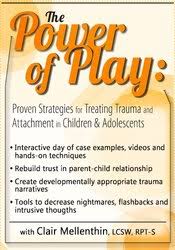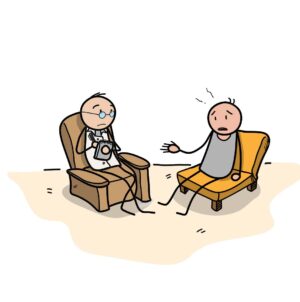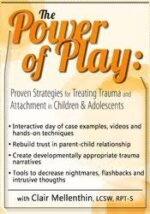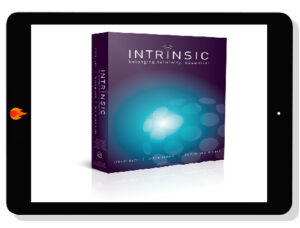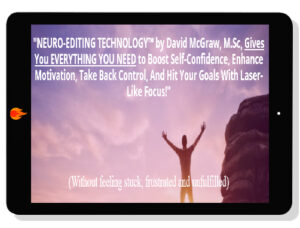In this innovative workshop, we will explore how trauma impacts the brain, the resulting impact on the parent-child relationship, as well as how to effectively treat and resolve trauma symptoms utilizing attachment-centered play therapy techniques.
Clair Mellenthin – The Power of Play ,Proven Strategies
Interactive day of case examples, videos and hands-on techniques
Rebuild trust in parent-child relationship
Create developmentally appropriate trauma narratives
Tools to decrease nightmares, flashbacks and intrusive thoughts
Play Therapy is a powerful tool for children who’ve experienced trauma. It is a safe space where they can feel in control, learn how to identify and manage distressing symptoms and give language to what they are feeling within their body and mind.
In this innovative workshop, we will explore how trauma impacts the brain, the resulting impact on the parent-child relationship, as well as how to effectively treat and resolve trauma symptoms utilizing attachment-centered play therapy techniques.
By giving children opportunities to work in a child-centered setting, you will observe and document how children:
Utilize gradual exposure
Regulate affect
Gain knowledge of their traumatic experiences
Manage their experiences that can feel overwhelming or frightening
This trauma-anchored model teaches you powerful play therapy interventions. It deepens metaphor work by amplifying the child’s ability to explore the material they externalize, and provides the child with a safe, predictable environment for processing interpersonal trauma. You will learn theory and techniques that values children’s pacing, respects defensive strategies, and seeks to help children build alternative skills to cope with difficult thoughts, emotions and behaviors.
Discover how trauma impacts brain development, and how play therapy can strengthen relationships and improve behavior.
Describe three complex trauma warning signs and how to assess for them.
Define areas of the brain affected by trauma and the resulting behavioral symptoms exhibited in children.
Identify attachment wounds caused by trauma and what you can do- even in the most secure parent-child relationship.
Discover how play therapy can help clients heal from and move beyond their personal trauma – letting go of their victim status and embracing their new role as a survivor.
Define how attachment theory applies to play therapy and how to view family systems through the lens of attachment.
Discover 5 play therapy techniques in becoming more competent and confident in engaging parents in family play therapy.
Show an effective evidence-based play therapy technique that can treat trauma symptoms and can be used immediately with your child and family clients.
Would you like to receive Clair Mellenthin – The Power of Play ,Proven Strategies ?
Framework of Attachment Theory
Rethinking the Attachment Spectrum
4 Key concepts of Attachment Theory
Creating safety in parent-child relationship
The Brain–Behavior Relationship
Parts of the brain affected by trauma
Regulatory processing and Executive functioning
Impact on right brain and its behavioral consequence
Warning signs of trauma
Trauma impact on the parent-child relationship
Behavior and emotional challenges
Proven Play Therapy Techniques to Strengthen Parent-Child Attachment
Decrease whining, clinging, angry, avoidant behaviors in child clients
Improve family relationships and communication skills
Rebuild trust in the parent-child relationship
Promote whole-child and whole-brain healing
Play Therapy Techniques to Treat Trauma, Utilizing Attachment-Centered Therapy
Guided Imagery to teach distress tolerance
Lemon Squeezies – Full Body Relaxation to reconnect with the body, decrease trauma symptoms
My Many Colors of Me – Increase emotional intelligence and connect feelings to words instead of acting out behaviors
Inside/Outside Box – Increase self-esteem and self-acceptance
Telling My Story – Create age-appropriate trauma narratives
Maximize the role of parents and caretakers
Create hands-on tools to decrease trauma symptoms: flashbacks, intrusive thoughts, and nightmares
Here’s What You’ll Get in Clair Mellenthin – The Power of Play ,Proven Strategies

